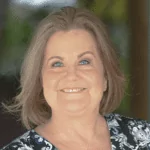by Debi Talbert
I’m in Brussels on a layover, unable to sleep my full eight hours. Again.
I know what’s coming; that familiar nagging realization starts to surface inside me. My drinking is out of control. How many did I have this time? Three – Four – Five. Who knows. What did I say? Who did I offend? I’m unable to remember. I am however annoyed, wide awake and aware I need to be dressed in my flight attendant uniform and downstairs with my smile ready to greet the flying public in 3 hours. My mind is racing with thoughts of worry and fear about what I said and did the night before. These inner conversations that fill me with dread seem to be a daily habit now.
When drinking is no longer fun.
The scenario described above happened all too often and I knew I drank too much. I wanted and needed help but worried about the stigma of admitting I had a problem. I felt trapped, alone and ashamed.
Only 1 in 12 people suffer from alcohol dependence — yet many more engage in risky or binge drinking. In fact, millions of drinkers who do not suffer from addiction are unhappy with their drinking habits. Even if they’re not physically addicted, psychological or emotional addiction can also be incredibly difficult to overcome.
For years I drank with a take or leave it attitude. In my late 40’s though, I started to notice the increasingly negative effects of the drinking on my life. I was able to consume 3 bottle of wine a night by the time I turned 59. My tolerance grew to the point I rarely felt “drunk,” but the amount of alcohol I drank affected my mornings. My relationship with alcohol changed; I frequently drank more than I ever set out to and it was no longer fun.
Drinking too much: My relationship with alcohol was dysfunctional.
When I made rules for myself around drinking — like only allowing myself to drink on the weekends — I felt miserable. I came to believe alcohol was vital to enjoy social occasions and to relax at the end of a long flight or work week. Though I did not drink in the mornings or suffer withdrawal symptoms during periods of abstinence, I felt deprived and upset if I didn’t allow myself to indulge.
My relationship with alcohol was one of the longest, and most dysfunctional), relationships of my life, lasting 36 years. I ended it by changing up the questions I asked myself each day about my drinking and was finally honest about its role in my life. I questioned why I was truly turning to alcohol and what I wanted from it. Reflecting on my own journey of self-discovery and personal growth made me curious and interested in life again.
How excess alcohol negatively affected my life
I did not realize the extent that alcohol was holding me back in life until I’d kicked the habit. Below are some of the ways my drinking impacted my life.
Self-destructive tendencies
It’s so easy and convenient to delay problems with alcohol. But it sure doesn’t solve them. After you stop drinking, you may realize the embarrassing situations, the things you said but wish you didn’t, happened in an alcohol induced state.
Chronic health Issues.
I realized alcohol was at the root of my health problems. From reflux to irritable bowel syndrome, acne to vitamin deficiency—the list goes on and on. My biggest health issue involved twice-yearly boughts of deep, deep depression. Once I quit alcohol, my depression disappeared. I been not been depressed even once in the three years since I became sober.
Low self-respect
So many of us drink because we lack the confidence to be vulnerable without “liquid courage.” But consistently losing control doesn’t cultivate self-esteem. Over time, it erodes it. Learning how to handle your life, and eventually realizing that you can conquer any challenge—without any numbing agents—is the best thing you can do for your long-term self-acceptance and personal growth.
Lack of energy
I now have an extra spring in my step that many individuals my age just don’t have. People think I’m 10 or 15 years younger than I actually am. My eyes are gleaming and my skin is vibrant again. There’s a sparkle in my life that was I missing since I was young and free. In the past I thought I could find that spark in a bottle. Turns out, the alcohol is exactly what kept me from feeling that way.
Don’t wait.
Looking back on my years of misguided drinking—I wasted a lot of time trying to appease others or hide hurtful or shameful feelings. Once you experience how wonderful life can be without alcohol, you realize how much you missed during those years.
The bottom line
I am happier, healthier, fitter, more productive, and better rested now that I no longer feel the need to reach for a drink or two (or three) every day. I work toward achieving dreams and I am starting a business as my third act. I feel joyful and am back to the “get a room” kind of relationship with my husband of 25 years. I spend quality time with amazing kids and grandkids. The biggest difference between who I am now verses who I was? I am fully present and absolutely loving life.
 Debi Talbert is a certified Life Coach with The Life Coach School and This Naked Mind Institute. She coaches the 50 plus individual who is exhausted trying to figure out how to end their dysfunctional relationship with alcohol. She helps people who struggle to stop drinking, but do not accept the labels of “alcoholic” or “powerless”.
Debi Talbert is a certified Life Coach with The Life Coach School and This Naked Mind Institute. She coaches the 50 plus individual who is exhausted trying to figure out how to end their dysfunctional relationship with alcohol. She helps people who struggle to stop drinking, but do not accept the labels of “alcoholic” or “powerless”.
Debi knows at a deeply personal level that Life Coaching is transformative. She helps clients rebuild their trust in themselves and change their beliefs about life. She is the creator of Exit The Drinking Life podcast and offers online programs which include training videos and weekly live coaching sessions.In addition, she offers a monthly membership to teach you to coach yourself, teach you how to feel better, teach you to take massive action and flourish in life beyond alcohol. Find information about programs and resources at jumpseatcoaching.com
Related article: 50plus-today.com/proof-hypnosis-works-50-plus-life/
originally published: Oct 9, 2019
updated: oct 21, 2021











Great article Debbie , and happy you have conquered this battle??
Excellent article that will undoubtedly help many who share this battle with you.
Great article and proud to know you. I hope to read more articles from you
So proud to know you, Debi, and this is a wonderful ‘step outside your comfort zone’ to write an article. Well done!
Great insight. Thank you for your openness.